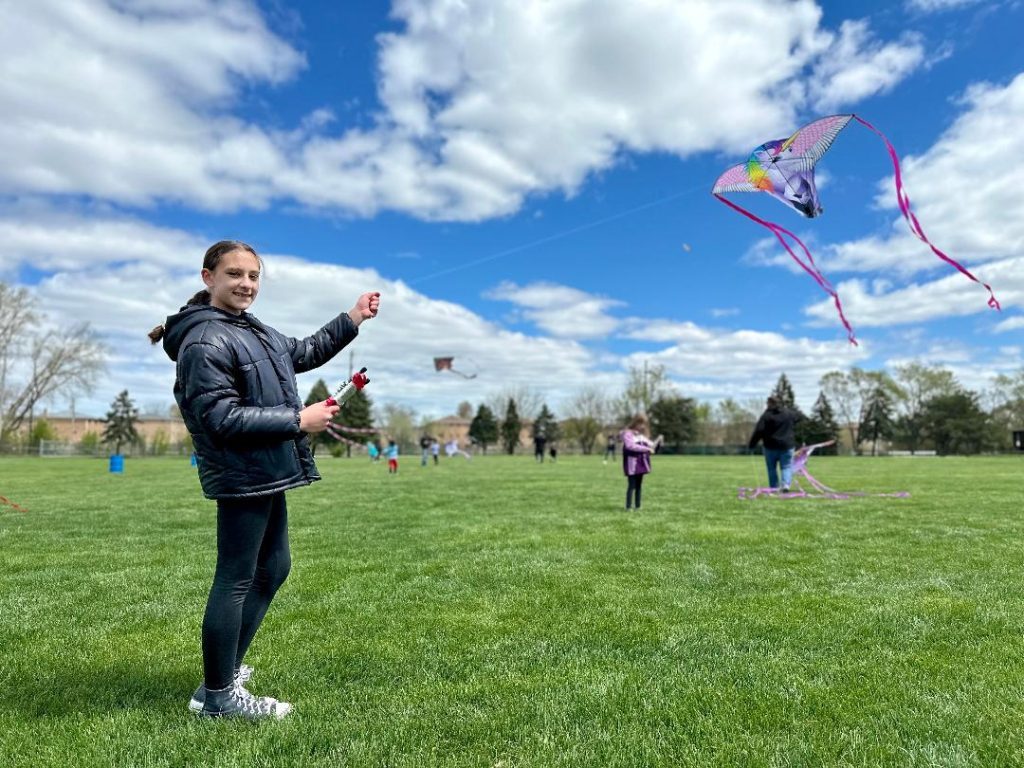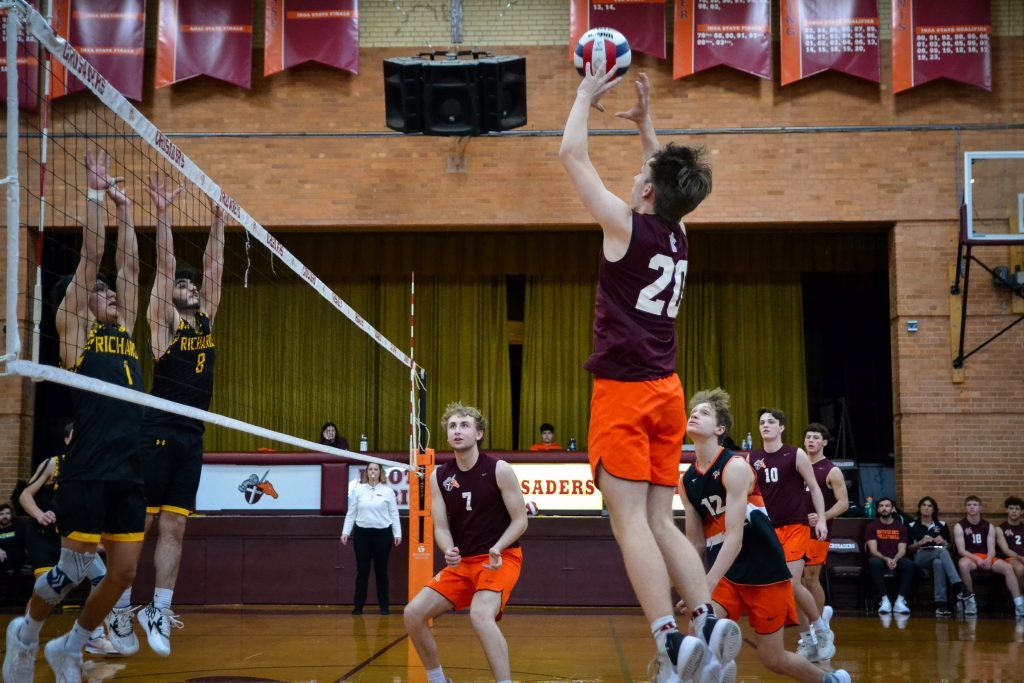
CAPITOL RECAP: Governor, Chicago mayor show reopening optimism
By Capitol News Illinois
SPRINGFIELD – Gov. JB Pritzker announced Tuesday the Chicago Auto Show will return in July, signaling the return of some larger-scale events amid declining COVID-19 positivity rates.
The announcement comes one day after Pritzker announced the state could be moving forward to the “bridge” phase of reopening as early as next week, which allows for large-capacity venues such as convention halls and outdoor events to resume operations with capacity guidelines and safety measures in place.
Pritzker said the return of one of the state’s top convention attractions is a “critical step” towards the state’s full economic recovery.
“With strong public health protocols in place, the Chicago Auto Show will be the first large convention to take place in Illinois since the onset of the COVID-19 pandemic, setting the stage for the safe return of big events in the months to come,” Pritzker said in a news conference at Chicago’s McCormick Place convention center, which hosts the Auto Show.
According to a news release, the Auto Show will be held from July 15 to 19 and will incorporate “innovative” safety measures, such as a hybrid indoor-outdoor setting for the first time in its history.
Other safety measures will include timed entrance windows and staggered admission, contactless tickets, temperature checks, medical questionnaires, and a requirement to wear face coverings at all times.
The event would not require proof of vaccination for entry, officials said.
At the news conference Tuesday, Chicago Mayor Lori Lightfoot said she aims to have the city of Chicago “fully open” by July 4.
When asked about the state’s reopening timeline Tuesday, Pritzker would not provide dates for when public health restrictions may be lifted, but said he remained “optimistic” about lifting some restrictions in the weeks ahead.
* * *
MLK STATUE: Illinois Secretary of State Jesse White on Tuesday said it’s time for the state to construct a new statue commemorating Martin Luther King Jr., as the current statue’s rendering “does not properly reflect Dr. King,” White said in a news release.
White said he would personally contribute the first $5,000 in funding the new statue that would be situated in a more prominent location on the Capitol grounds.
The current 300-pound bronze likeness of King is located across the street from the Capitol building, on the corner of 2nd Street and Capitol Ave. — referred to as Freedom Corner.
King’s likeness on the Capitol grounds was built in 1988, and he was the first non-Illinois resident to be memorialized with a statue, according to the Springfield visitor’s center.
King’s efforts to oppose segregation in all segments of American society, from housing and schools to public accommodations and private businesses, are often credited with propelling the civil rights movement into mainstream popularity in the 1950s and 60s.
White’s statement comes after House Speaker Emanuel “Chris” Welch, D-Hillside, created a new committee tasked with reviewing statues and monuments on state property. The committee, which met for the first time on April 21, heard testimony from professors and state government associations about how to guide the review process.
King’s statue is located across the street from the Statehouse because of an administrative rule that only allows historical figures related to Illinois to be installed on the Capitol grounds.
At the meeting, the board of the Office of the Architect of the Capitol approved a motion to revise that rule.
* * *
SCHOLARSHIP TAX CHANGE: The Catholic Conference of Illinois is lobbying against proposed tax changes for the 2022 fiscal year that would reduce an income tax credit gained for donations to private scholarships.
In a letter released Tuesday, Cardinal Blase Cupich of the Archdiocese of Chicago joined bishops representing the state’s other five dioceses – administrative districts under the Catholic Church – asking Catholics to call their local legislators and ask them to oppose the measure put forward by Gov. JB Pritzker, which they called “an important matter of public policy and social justice.”
The governor’s February budget outline for FY 2022 proposes nine policy changes to the corporate tax code. One of these changes applies to both businesses and individuals: a reduction to the state income tax credit gained for donating to an approved scholarship granting organization.
The scholarship granting organization must provide tuition to children of families whose income is at or below 300 percent of the federal poverty level for that census tract area. Many of the scholarships go toward the private tuition of Catholic educational institutions in the state.
Under current law, 75 percent of the donation can be claimed as credit against the state’s income tax. If Pritzker’s preferred budget was to be enacted, the credit would be reduced to 40 percent of the donation.
That law was originally put into place as part of the Invest in Kids Act during budget negotiations under Republican former Gov. Bruce Rauner in 2017. It was part of the package creating an evidence-based funding formula to overhaul the way the state funds public schooling.
Pritzker has received criticism from business leaders and Republican lawmakers for referring to his suggested tax changes as “closing corporate loopholes,” since they were originally implemented as deliberate policy changes under previous governors or Pritzker himself.
* * *
VETERANS HOME UNPREPARED: A state watchdog report into the deadly COVID-19 outbreak at the LaSalle Veterans’ Home found multiple failures that contributed to 36 veterans deaths, stemming primarily from the home’s complete lack of infection prevention plans or policies.
The report also found deficiencies in communication and staff training at the LaSalle home, as well as repeated lack of compliance with personal protective equipment protocols.
The LaSalle home, one of four state-run veterans homes, had no documented COVID-19 specific policies or outbreak plan, despite the well-known risks of coronavirus transmission in places like long-term care facilities, according to the report from the Illinois Department of Human Services’ Office of the Inspector General.
The 50-page report depicts a facility that was woefully unprepared to handle an infection outbreak, leading to a chaotic and uninformed outbreak response that was exacerbated by disorganized leadership at the department and the home.
The IDHS investigation included analyzing COVID-19 data, trends and protocols in the LaSalle home and assessing IDVA’s preparation, response and compliance with protocols and regulations. It also included 29 individual interviews and the review of hundreds of documents.
The report documented serious leadership failures at the Illinois Department of Veterans’ Affairs, from the former LaSalle Home Administrator Angela Melbrech, to the former IDVA Director Linda Chapa LaVia and her Chief of Staff Tony Kolbeck.
The watchdog report comes after the outbreak at LaSalle that killed about one-quarter of the home’s population. Chapa LaVia called for the DHS Inspector General investigation on Nov. 24 when the home had reported 27 veteran deaths.
Since then, both Melbrech and Chapa LaVia have vacated their positions. An IDVA spokesperson said Friday Kolbeck had resigned from the department as well.
Gov. JB Pritzker, who appointed Chapa LaVia in 2019, said he hired her to lead the IDVA because of her role in investigating the deadly outbreak of Legionnaires’ disease at the Quincy Veterans’ Home.
“She seemed like an ideal person to be able to root out the problems in our veterans homes. But I have to admit that, if I knew then what I know now, I would not have hired her,” Pritzker said Friday at an unrelated news conference.
* * *
CALLS FOR CRIMINAL INVESTIGATION: Some Republicans in the General Assembly, including House Minority Leader Jim Durkin, are calling for a criminal investigation into the COVID-19 related deaths at the state-run LaSalle Veterans’ Home.
The push for a criminal probe comes after a state investigative report was released Friday that found there were widespread failures at the LaSalle facility and the Illinois Department of Veterans’ Affairs that contributed to 36 resident deaths there since November.
The report from the state Department of Human Services’ Office of the Inspector General found the facility failed to prepare for an outbreak, lacked infection prevention plans or policies, and had major issues with communication, staff training and education. It also found that senior officials at the IDVA and LaSalle facility were not taking control or actively managing the outbreak as it became a crisis.
Durkin, a former Cook County prosecutor, said a criminal investigation into the deaths should be initiated because there is a criminal statute specifically addressing abuse or neglect of a long-term care facility resident.
The criminal statute states, in part, that a person commits criminal neglect of a long term care facility resident when he or she recklessly “performs acts that cause a resident’s life to be endangered, health to be injured…or that create the substantial likelihood that an elderly person’s or person with a disability’s life will be endangered, (or) health will be injured….”
Durkin said the Illinois Attorney General could conduct a criminal investigation into the deaths at LaSalle, citing a precedent set at the Quincy Veterans’ Home.
In 2018, then-Attorney General Lisa Madigan, a Democrat, launched a criminal investigation into how the administration of then-Gov. Bruce Rauner, a Republican, responded to the deadly outbreak of Legionnaires’ disease at Quincy between 2015 and 2018 that killed 13 veterans.
That investigation concluded in 2020, under current Attorney General Kwame Raoul, also a Democrat, who found there was not a basis to bring charges.
A spokesperson for the Raoul’s office did not immediately respond to a request for comment Monday.
* * *
COVID-19 UPDATE: While Gov. JB Pritzker and public health officials expressed optimism for the return of large events Tuesday, May 4, amid declining COVID-19 positivity rates, he stressed that the state remains “a long way from herd immunity,” and encouraged residents who have not been vaccinated yet to do so.
“The trends are encouraging, but we must be cautious as we move forward,” Illinois Department of Public Health Director Dr. Ngozi Ezike said in a Tuesday statement. “As more venues reopen, it is critical that we increase the number of people who are vaccinated.”
As of Tuesday, over 9.4 million vaccine doses had been administered statewide, with 40,361 doses being administered Monday.
A total of 4.1 million Illinois residents, or 32.5 percent of the state’s population, have been fully vaccinated against COVID-19.
Public health officials reported an additional 2,211 confirmed and probable cases of COVID-19 Tuesday as the state’s seven-day rolling case positivity rate stood at 3.3 percent. The state reported an additional 19 deaths Tuesday.
* * *
ECONOMY SHRINKS: The Illinois economy shrank by 4 percent in 2020 as the COVID-19 pandemic wreaked havoc on many of its sectors, although there were signs of a recovery taking place late in the year.
Those preliminary numbers, released last week by the U.S. Department of Labor’s Bureau of Economic Analysis, showed that the leisure, hospitality and food service sector was the hardest hit by the pandemic, reporting a nearly 30 percent drop in economic output for the year.
That was due to the forced closure of bars, restaurants, theaters, amusement parks and most tourist attractions in the early phases of the pandemic, as well as the cancellation of large conventions and business meetings.
According to BEA, real gross domestic product decreased in all 50 states and the District of Columbia in 2020. Utah, with a 0.1 percent shrinkage rate, fared the best, while Hawaii’s state economy shrank 8 percent. The average shrinkage rate for the U.S. as a whole was 3.5 percent.
Accommodation and food services were a contributing factor to the declines in all 50 states and D.C., and they were the leading contributor to the decreases in 38 states plus D.C.
Other industries that suffered in Illinois included transportation and warehousing, down 14 percent; nongovernment services, down 12.3 percent; manufacturing, down 7.3 percent; wholesale trade, down 5 percent; and retail trade, down 2.3 percent.
The one bright spot in the state’s economy was the agriculture sector, which grew by nearly 68 percent over the previous year. That was largely the result of a bad harvest year in 2019, followed by a good one in 2020.
When the numbers are broken out on a quarterly basis, however, the biggest drop in economic output occurred during the 2nd quarter, April-June, when Illinois was under the most severe economic restrictions. The economy began to pick up in the 3rd quarter, and by the 4th quarter was growing at an annualized rate of 3.5 percent.
But the recovery has not been even across all sectors, and the leisure and hospitality industries continue to suffer.
* * *
RANSOMWARE ATTACK: A data breach reported by Attorney General Kwame Raoul’s office nearly three weeks ago was a ransomware attack, according to a Thursday, April 29, news release.
Raoul’s office has launched a new hotline to provide information to residents following the data breach first reported on April 10.
A Thursday news release stated that the office “continues to evaluate the full extent of the compromise,” including what specific data may have been compromised in the breach.
“While we do not yet know with certainty what was compromised in the ransomware attack, we are working closely with federal law enforcement authorities and outside technology experts to determine what information was exposed, how this happened, and what we can do to ensure that such a compromise does not happen again,” Raoul said in the release.
Raoul’s office stated that the purpose of the hotline is to allow residents who may have concerns about the breach to receive answers to their questions while the investigation is ongoing.
The hotline can be reached by calling 1-833-688-1949 between the hours of 8 a.m. and 5 p.m. Monday through Friday.
The Chicago Sun-Times reported Thursday that a ransomware group “potentially linked to Russia,” known as DoppelPaymer, had posted documents it had stolen from the Attorney General’s office over a period of two weeks.
Ransomware is a malicious software that collects the victim’s personal data and threatens to publish it unless a ransom is paid to the hacker.
A public notice on the Attorney General’s website said that leaked information could include sensitive personal information such as individuals’ names, addresses and social security numbers.
The notice stated that all information about the breach, including the exact extent of what information was stolen, will be made available at www.illinoisattorneygeneral.gov as it becomes available.
* * *
MATERNAL MORBIDITY: The Illinois Department of Public Health on Thursday, April 29, issued its second report on maternal mortality rates in the state, which found there were 103 pregnancy-associated deaths in Illinois in 2017 – the highest number of any year in that decade.
The report looked at deaths during or after pregnancy from 2016 to 2017, with 175 pregnancy-associated deaths logged during the two-year span.
The report, presented Thursday by IDPH Director Dr. Ngozi Ezike, IDPH Deputy Director Shannon Lightner and Maternity Mortality Review Committee Chair Dr. Robin Jones, found that Black women were almost three times as likely to die within one year of pregnancy than white women.
The number of maternal deaths per capita was also higher in rural regions of the state, and most of the deaths would have been preventable if the mothers had better access to health care.
“The committees determined that 83 percent of the pregnancy-related deaths were potentially preventable, meaning that there was some chance that the death could have been avoided if reasonable changes could have been made at the provider hospital, community system or patient levels,” Lightner said.
The “Illinois Maternal Morbidity and Mortality Report 2016-2017” defines maternal mortality as when an individual died while pregnant or within one year of pregnancy regardless of the outcome of the birth.
A distinction is made between pregnancy-associated deaths – which include any death that occurs during or within one year of pregnancy from any cause; and pregnancy-related deaths – which include any death that occurs during or within one year of pregnancy due to complications with the pregnancy or any condition or ailment caused or exacerbated by pregnancy.
Illinois reviews maternal deaths through two different committees. One reviews deaths suspected to be medically related to pregnancy, while the other reviews deaths resulting from homicide, suicide or drug overdose.
Since 2008, the ratio of pregnancy-associated deaths per 100,000 live births has increased in Illinois.
Black residents were almost three times as likely to die within one year of pregnancy as white residents, and a similar disparity exists between residents on Medicaid during their pregnancy versus those on private insurance.
The highest rates of pregnancy-associated deaths per 100,000 live births was observed in rural regions of the state at 83, while the lowest rates were found in suburban Cook County and the surrounding collar counties.
* * *
HOUSING ASSISTANCE: The Illinois Senate voted Thursday, April 29, to pass House Bill 2877, which aims to extend emergency protections to renters and homeowners financially impacted as a result of the COVID-19 pandemic.
It needs only a signature from Gov. JB Pritzker to become law after passing the House last week.
The bill, known as the COVID-19 Federal Emergency Rental Assistance Program Act, primarily aims to provide assistance to renters and landlords by distributing federal funds through the Illinois Housing Development Authority to support renters who have been unable to make rent payments as a result of pandemic-related economic hardship.
The bill also requires all eviction records filed due to financial hardship to be sealed through Aug. 1, 2022, and implements a temporary stay of certain foreclosure proceedings and filings.
The eligibility and application process to receive support is set by the federal government, with additional eligibility set forth by IHDA.
Chief Senate sponsor Omar Aquino, D-Chicago, said the primary goal of the bill is to “keep people in their homes” for the remainder of the pandemic.
While Gov. JB Pritzker has issued successive monthly moratoriums on evictions due to financial hardship during the course of the pandemic, proponents of the bill said the protections offered by the legislation would benefit renters most at risk of eviction due to losing their jobs or other factors.
Pritzker has stated that subsequent eviction moratoriums will be largely dependent on additional emergency funding from the federal government.
HB 2877 would aim to distribute approximately $1.4 billion in emergency assistance made available to the state by the federal government.
According to information from the Illinois Department of Human Services, an estimated 60,000 Illinois households are vulnerable for eviction in 2021 as a result of the pandemic.
* * *
FOID OPINION: For the second time, a county judge in southern Illinois has ruled the state’s Firearm Owner Identification Card law unconstitutional, as applied to one state resident, Vivian Brown.
The ruling from Judge T. Scott Webb means the Illinois Supreme Court will, also for the second time, be in a position to decide whether to strike down the FOID card law as unconstitutional.
If the state decides to appeal this decision that found the FOID law unconstitutional, the appeal will be heard by Illinois Supreme Court — just as the high court did in 2018 when the FOID card law was found unconstitutional by a different judge in this case.
Under the state Firearm Owner Identification card law, prospective gun owners must pay a $10 filing fee and submit an application in order to be eligible for the FOID card, which is required for Illinoisians to obtain a firearm.
This case out of the Second Judicial Circuit in White County, People v. Vivian Brown, involves a challenge to the constitutionality of the FOID law that arose after Brown was charged with possessing a rifle in her home without a FOID card in 2017.
At the time, Brown was eligible to obtain a FOID card but did not have one.
Brown argued the law violated the Second Amendment because it prohibited a person who could legally possess a weapon from keeping one in his or her home.
Retired Second Judicial Circuit Judge Mark Stanley dismissed Brown’s charge in October 2018, finding the FOID card law was unconstitutional as applied to her.
* * *
ETHICS FINDING: A state ethics commission has found a former Exelon lobbyist sexually harassed one of his female colleagues on two separate occasions in Springfield, in violation of the Lobbyist Registration Act.
David Fein, formerly Exelon’s senior vice president of state governmental and regulatory affairs, will have to pay a $6,000 fine and his lobbyist registration will be suspended until Dec. 31, according to the April 23 decision from the Illinois Executive Ethics Commission.
The commission is a nine-member entity that conducts hearings on alleged ethics violations.
The decision states that Fein’s behavior toward his female colleague “was of a sexual nature and was sufficiently severe or pervasive to create an intimidating, hostile, or offensive working environment” for his colleague.
The EEC decision about Fein’s misconduct was first reported by the Chicago radio station WBEZ.
Fein left his position at Exelon in August 2019 after Crain’s Chicago Business reported about the allegations of sexual harassment against him.
The EEC’s findings that Fein engaged in sexual misconduct stems from two incidents, in March and April 2019, involving a female Exelon employee who was subordinate to Fein, identified in the EEC decision as Witness A.
* * *
VW SETTLEMENT SPENDING: Gov. JB Pritzker’s administration released a revised plan for how to spend the state’s share of a multi-billion dollar Volkswagen settlement, which found the vehicle manufacturer in violation of the federal Clean Air Act.
Illinois initially received approximately $108 million from the settlement. The plans that were released Thursday include a $9 million grant opportunity to electrify school buses in Chicago and the Metro East, as well as redirecting the remaining $88.6 million to other electric transportation and infrastructure projects throughout the state.
The Illinois Environmental Protection Agency has been designated to develop a plan for allocating the funds in the state, which are to be used on projects to fully remediate excess nitrogen emissions from unauthorized VW vehicles.
The $9 million to electrify school buses will grant up to $6.5 million to the Chicago metropolitan area and up to $2.5 million to the Metro East.
The initial complaint against VW, filed in January 2016, alleged that the vehicle manufacturer violated the Clean Air Act by selling approximately 590,000 vehicles equipped with software that evaded federal vehicle emissions standards.
EPA resolved the case through a series of three partial settlements depending on the liter size of the diesel engines that were affected. The settlement established that VW will provide $2.7 billion for the 2.0 liter violating vehicles and $225 million for the 3.0 liter violating vehicles to an Environmental Mitigation Trust, both sums to be distributed across the U.S.
Of the remaining $88.6 million from the VW settlement, approximately $33.6 million will be used for all-electric school buses, approximately $13.3 million for light-duty electric charging infrastructure and approximately $1.7 million will be used for IEPA administrative costs.
* * *
MANUFACTURING PROGRAMS: Gov. JB Pritzker announced Wednesday, April 28, the state was distributing funds to two downstate Illinois community colleges for electric vehicle manufacturing and renewable energy generation training programs.
Pritzker made the announcement at Heartland Community College in Normal, where one of the new programs will launch.
“I’m committed to building an Illinois that is focused on high quality skilled labor and developing that so that we can maintain our manufacturing prowess for generations to come,” Pritzker said at the news conference. “And so that our residents are ready for the millions of new manufacturing jobs arising over the next decade.”
HCC and Southwestern Illinois College in Belleville will begin enrolling students in their new specialized manufacturing programs for the fall semester.
HCC is partnering with electric vehicle automaker Rivian to establish a training academy for students who want to join the manufacturing industry. Along with state funds, a $1.5 million private employer commitment will allow HCC to develop a new auto shop that will be used exclusively for training in how to build electric vehicles.
The program will start with about a dozen students and be fully operational by 2023.
SWIC will also add to its existing manufacturing training facilities to offer industrial electricity and welding manufacturing training. This facility is expected to begin operation by fall 2022.
The programs are funded through the bipartisan Rebuild Illinois capital plan that passed in the governor’s first year in 2019.
The Illinois Department of Commerce and Economic Opportunity said that the funds will be split between the two programs, with each college receiving $7.5 million to launch their programs. The state funds will also be met with $4.95 million in matching commitments for capital projects, officials said.
* * *
DELIVERY SERVICES: Senate Bill 672 would create the “Fair Food Delivery Act,” requiring third-party delivery services such as DoorDash and Uber Eats to have formal agreements with the restaurants and retailers for whom they deliver before they can use the merchant’s name, likeness, menus or other intellectual property.
Sen. Melinda Bush, D-Grayslake, the chief sponsor of the bill, said it is designed to prevent those restaurants and retailers from being taken advantage of by the delivery services.
The bill would only apply to delivery services that have an online presence such as a website or smart phone app.
Bush said when issues arise about a delivery, such as an incorrect order or added delivery fees, customers often complain to the restaurant, even though the restaurant may not have known that the order was placed by the delivery service.
She also said she negotiated the legislation with delivery service companies and described those talks as “fruitful,” but admitted they were not able to agree on a key element.
“These companies want to be able to list all of the restaurants in their area that you can order food from, even if they don’t have an agreement with those restaurants,” she said. “We believe if they don’t have an agreement, that’s proprietary and they shouldn’t be able to list that restaurant when they can’t deliver for it.”
The bill cleared the Senate by a vote of 55-0 Thursday, April 29, and now heads to the House for consideration.
* * *
PUBLIC EMPLOYEE UNIONS: The Senate also passed a bill Thursday, April 29, aimed at rolling back some of former Gov. Bruce Rauner’s actions regarding public employee unions.
Senate Bill 525, by Sen. Omar Aquino, D-Chicago, would provide that a state employee’s eligibility to be a member of a collective bargaining unit be based on the duties that employee actually performs rather than the duties listed in a written job description.
“The Labor Relations Board, primarily under the Rauner administration, issued decisions overturning decades of case law allowing employees to be designated confidential, supervisory or managerial based on written job descriptions and not the duties an employee actually performs,” Aquino said on the Senate floor. “Employees who had been part of the bargaining unit for decades saw their collective bargaining rights taken away despite never having performed the duties in the written job description that caused them to be excluded.”
Aquino said the bill came about through an agreement with the Department of Central Management Services and the American Federation of State, County and Municipal Employees, or AFSCME, the state’s largest public employee union.
Republican Sen. Jason Barickman, of Bloomington, argued against the bill, saying that currently about 93 percent of the state’s workforce is part of a collective bargaining unit, making it difficult for supervisors to manage their employees because so few individuals qualify as supervisors. He said passage of the bill would exacerbate that problem.
Aquino, however, said the bill would only return the state’s labor relations to the conditions that existed before the Rauner administration, “and every step that we can do to go back to those days before that administration is a better day for our state.”
The bill passed, 44-11.
* * *
LGBTQ DATA: Hospitals and state agencies in Illinois would be required to gather more demographic data about COVID-19 patients to determine how the pandemic has affected the LGBTQ community under a bill that cleared the Senate Thursday, April 29, on a 40-1 vote.
Sen. Mike Simmons, D-Chicago, the first openly gay member of the Senate and lead sponsor of Senate Bill 2133, said that information is needed to ensure visibility and justice for historically marginalized communities.
The bill, which is supported by the AIDS Foundation of Chicago and the gay rights advocacy group Equality Illinois, calls on hospitals and state agencies to gather specific data about the age, sex, disability status, sexual orientation and gender identity of COVID-19 patients.
“Any pandemic relief and recovery must be rooted in an understanding of what disparities got us here,” Simmons said in a statement. “This vote (Thursday) is a declaration to LGBTQIA+ communities that we see them and are working for a recovery that includes them.”
He referenced studies that he said show members of those communities are more likely to have chronic conditions and other risk factors that can increase vulnerability to COVID-19.
Sen. Darren Bailey, R-Xenia, was the only senator to vote against the bill. Eighteen other senators did not cast a vote.
* * *
NURSING HOME VISITATION: Another bill that passed the Senate Thursday, April 29, would require nursing homes and other long-term care facilities to adopt procedures to prevent social isolation among their residents, including making technology available for online visits with loved ones when in-person visits are not possible.
Senate Bill 2137, cosponsored by Democratic Sen. Jacqueline Collins, of Chicago, and Republican Sen. Donald DeWitte, of St. Charles, passed unanimously, 53-0.
“This last year was incredibly difficult for seniors who were unable to touch or hug their loved ones during the COVID-19 pandemic, and SB 2137 will ensure that moving forward we place more of a balance between physical and social-emotional health,” DeWitte said in a statement.
The bill provides that online visitation and other forms of social isolation prevention measures would be in addition to, not a substitute for, in-person visitation and that each patient’s individualized visitation plan should give priority to the resident’s own preference over the resident’s representative.
It also provides that long-term care facilities could apply for grants from the state’s civil monetary penalty fund, as well as other state and federal funds, to pay for assistive and supportive technology.
Starting Jan. 1, 2023, facilities that fail to comply with the new rules could be subject to administrative penalties.
* * *
ENERGY BILL: The governor’s office unveiled a 900-page energy overhaul bill Wednesday, April 28, accelerating a yearslong process which advocates hope will end in a comprehensive clean energy platform as the session nears its final month.
The stated goal of the bill is to drive Illinois to 100 percent “clean” energy by 2050. That, Deputy Gov. Christian Mitchell said in an interview Wednesday, would include nuclear power as a major contributor. Another goal is to bring Illinois to 40 percent of its utility scale energy produced by renewables, such as wind and solar, by 2030. Right now, that number is around 8 percent.
The bill contains some of the provisions put forth in other legislation, raising the rate cap on ratepayer bills for renewable projects from about 2 percent to 3.75 percent; ending formulaic rate increases for utilities immediately; and prohibiting natural gas companies from assessing a surcharge on bills starting January 2022.
It also requires an annual outside audit of Exelon Corporation — the parent company of scandal-ridden Commonwealth Edison — while providing about $70 million in subsidies each year for the next five years to two struggling nuclear plants owned by the company, one in Byron, one in Dresden. The subsidies are needed to ensure reliability of the state’s energy grid as nuclear becomes a larger part of the state’s energy mix, advocates say.
And it puts a price of $8 per ton on carbon emissions for fossil fuel providers such as coal-fired power plants and natural gas plants. That fee would escalate each year by 3 percent.
Mitchell, who is the lead energy negotiator in the Pritzker administration, said revenues derived from the carbon price are expected to generate between $400-$500 million annually.
About 40 percent of that would go to equity measures written into the bill, Mitchell said, while some of it would go to the Illinois Environmental Protection Agency for its operations, and some would go to bolstering the Illinois Commerce Commission on some of its new regulatory duties. A portion would also go to stabilize the state’s budget.
Sen. Michael Hastings, D-Frankfort, chair of a key energy committee in the state Senate, said in a phone call Wednesday the governor’s plan will spur a lot of discussion in the final month of session, and he said it contains some good, and some areas of concern.
For starters, Hastings said, the numbers behind a key audit of Exelon that were used to justify the subsidies remain redacted. Hastings, who is a supporter of a union-backed bill aimed at keeping the nuclear plants viable and ensuring union participation in the clean energy market, said any decision on subsidizing Exelon should not be decided until the utility and the governor’s office agree to release an unredacted copy of the audit – which cost taxpayers $208,000 and was commissioned by the governor’s office through Synapse Energy Economics Inc.
Capitol News Illinois is a nonprofit, nonpartisan news service covering state government and distributed to more than 400 newspapers statewide. It is funded primarily by the Illinois Press Foundation and the Robert R. McCormick Foundation.
Local News

Donate teddy bears to our local police
Spread the love. Peggy Zabicki Your correspondent in West Lawn 3633 W. 60th Place • (773) 504-9327 . Have you ever seen the 1955 movie The Night of the Hunter? The children in this movie show such bravery and acceptance in what life has thrown at them. They have to deal with unimaginable events and sadness. …

Boy Scouts collecting tattered flags for disposal
Spread the love. By Mary Stanek Your correspondent in Archer Heights and West Elsdon 3808 W. 57th Place • (773) 517-7796 . Goodbye April, hello May. Our American Flag, the symbol of our country, should always be treated with respect. But after bearing Chicago’s brutal winters and hot blazing summers along with being in the…
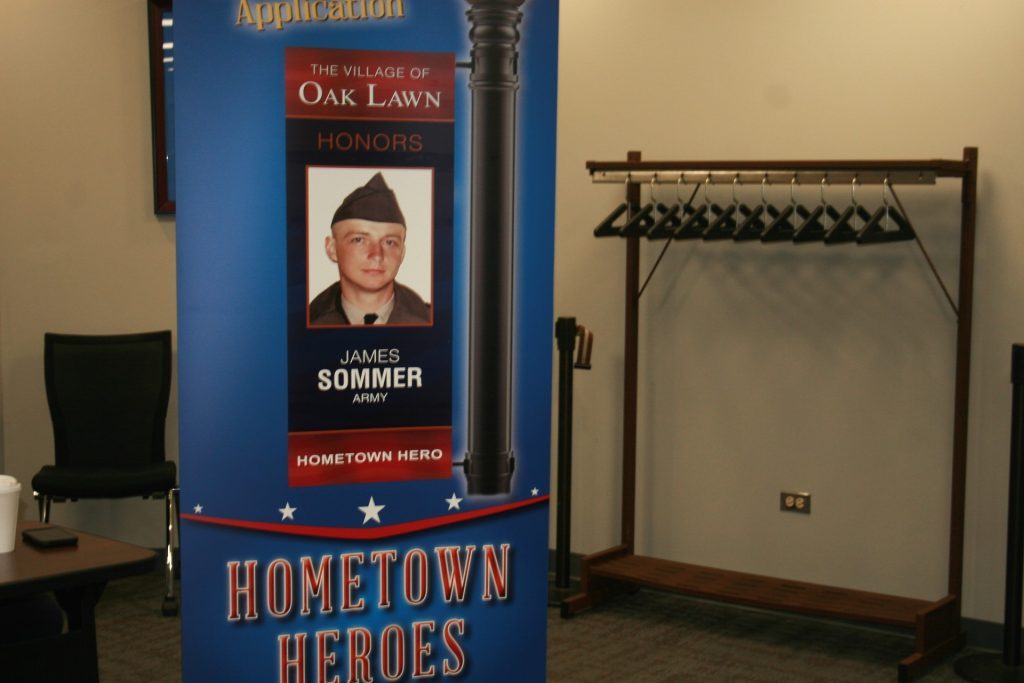
Oak Lawn trustee says village needs state grocery tax
Spread the loveBy Joe Boyle An Oak Lawn trustee said that Gov. J.B. Pritzker’s proposal to eliminate the state’s grocery tax will be costly for the village. Trustee William “Bud” Stalker (5th), accompanied by Mayor Terry Vorderer, recently returned from a fact-finding trip to Springfield where they learned more about the governor’s proposal to eliminate…
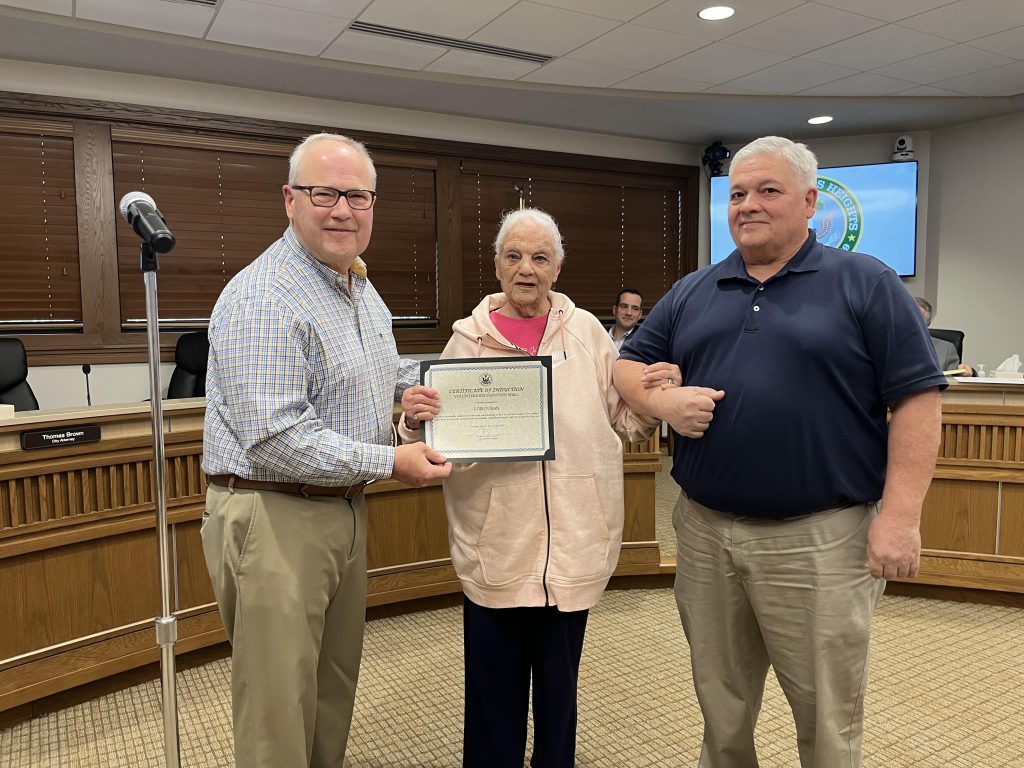
Palos Heights recognizes volunteers
Spread the loveBy Nuha Abdessalam Palos Heights handed out awards last week recognizing the services provided by volunteers through the years. The proclamations, which were read aloud during the city council meeting April 16, were a testament to the city’s volunteers and were handed out as part of Volunteer Recognition Week. Volunteers were cited for…
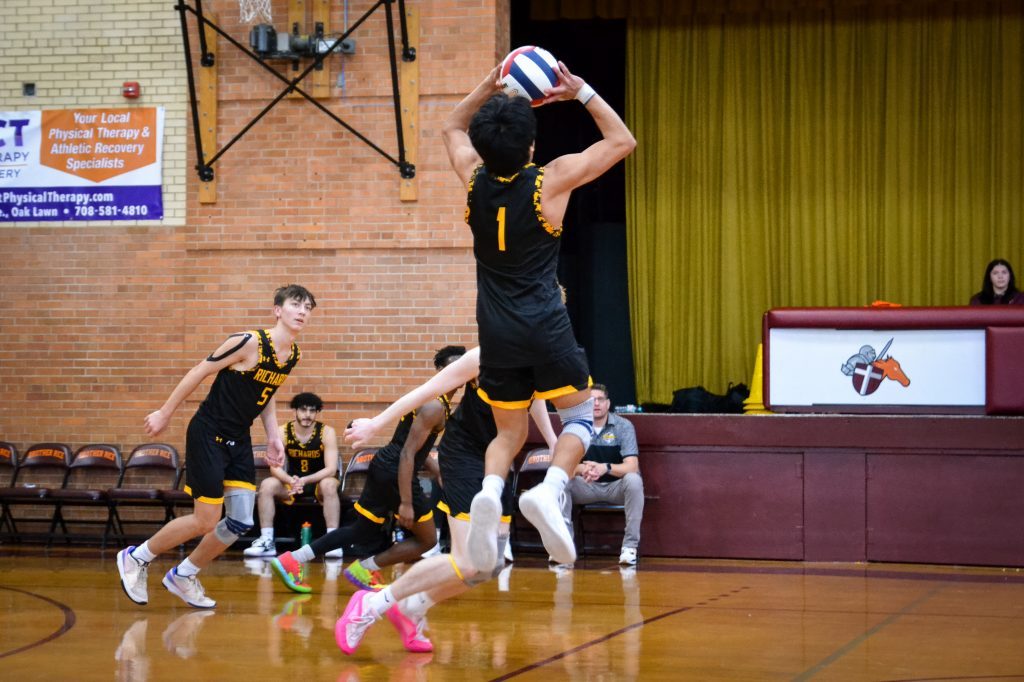
Boys Volleyball | Richards weathering struggles after run of success
Spread the loveBy Xavier Sanchez Correspondent After a tough weekend at the Smack Attack tournament, Richards got back into the win column with a two-set victory over Eisenhower in a South Suburban Red match. The Bulldogs made quick work of the Cardinals, winning 25-16, 25-15 on April 23 in Oak Lawn to snap a five-match…

SD218 puts on annual Arts Extravaganza
Spread the loveBy Kelly White The arts have become a major portion of the curriculum Community High School District 218. Showcasing those many talents, the Friends of CHSD 218’s Education Foundation proudly hosted its 15th annual Arts Extravaganza on April 5 at Eisenhower High School in Blue Island. “The Arts Extravaganza is a great event…
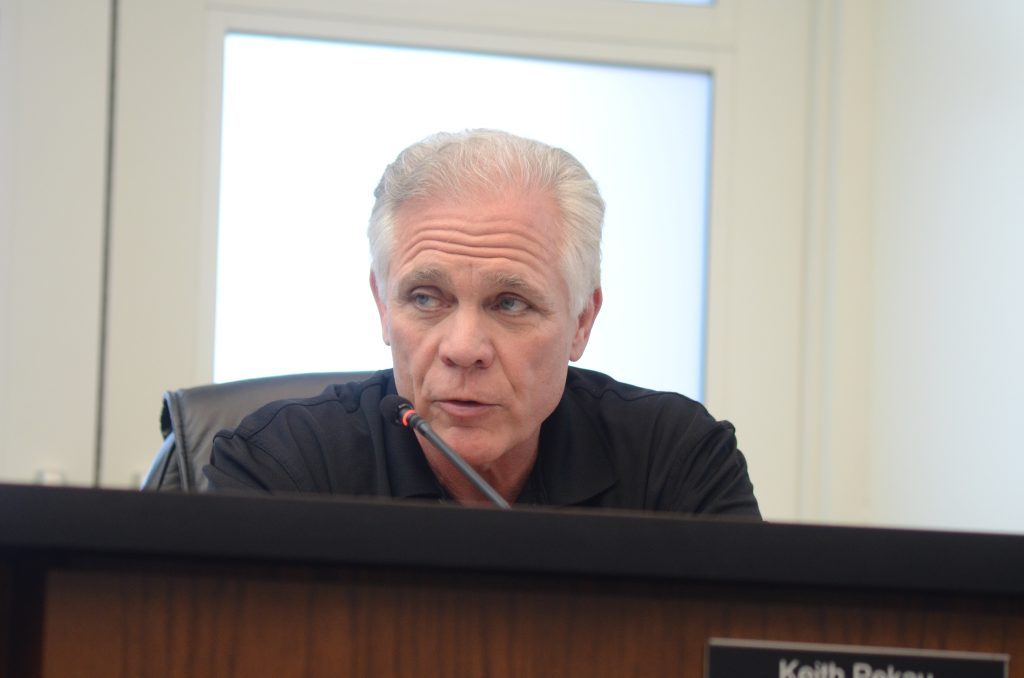
Gaming licenses to be tougher to get in Orland Park
Spread the loveBy Jeff Vorva It’s going to take longer to receive gaming licenses in Orland Park. The village board passed an ordinance April 15 that would allow table service businesses open at least 36 consecutive months to apply rather than the previous 18 months, and extended the probationary period to 18 months instead of…
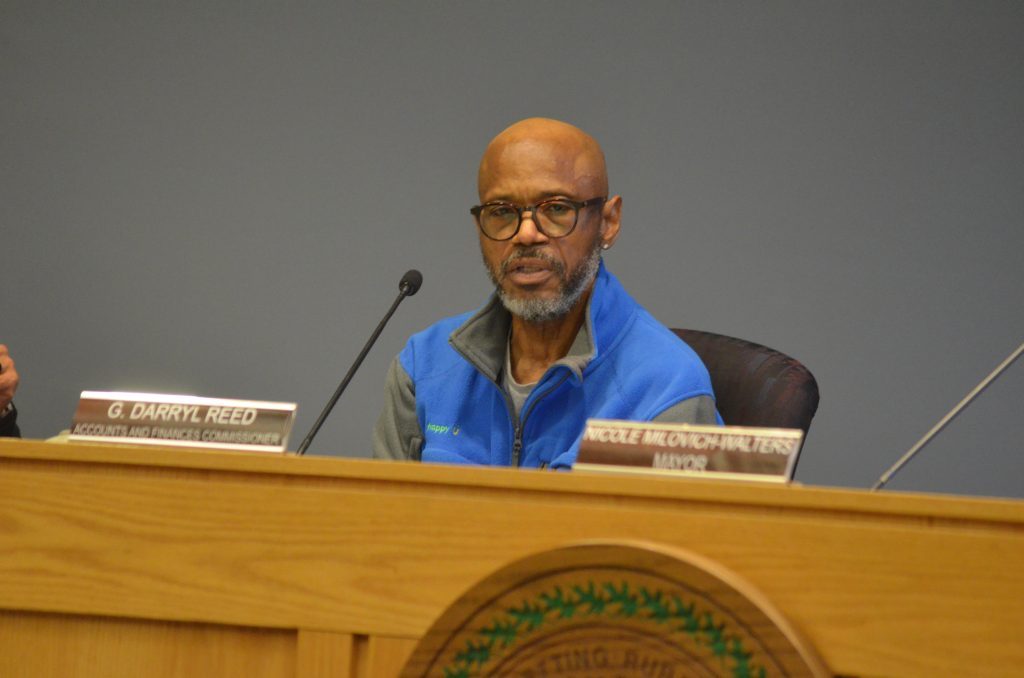
Palos Park passes $16 million budget
Spread the loveBy Jeff Vorva The Palos Park Village Council approved the 2024-25 budget, which totals a little more than $16.3 million at the April 22 village council meeting. According to village documents, it represented an increase of a shade over $603,000 from last year. The village is expecting $13.4 million in revenue and $1.86…
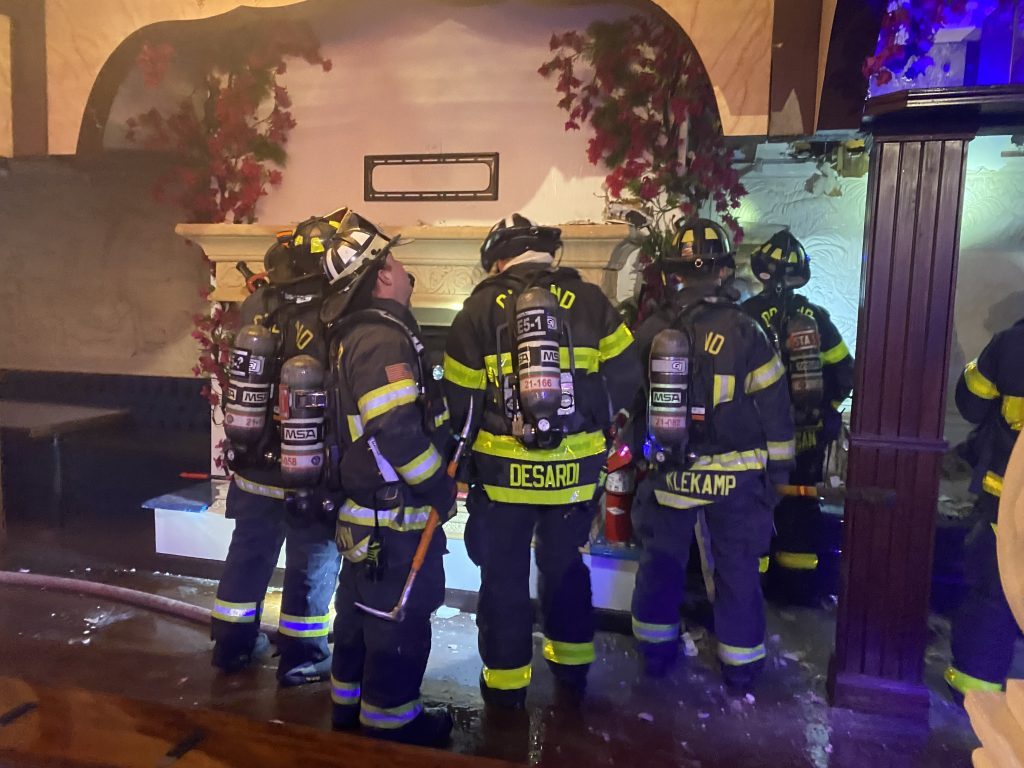
Fire damages Al Bahaar Restaurant in Orland Park
Spread the loveFrom staff reports Orland Fire Protection District firefighters responded to a fire Monday evening at the Al Bahaar Restaurant, 39 Orland Square Dr. At first, restaurant owners suspected the fire alarm was triggered by a malfunction, but as firefighters inspected the restaurant to reset the fire alarm, they detected a burning smell. “What…
Neighbors
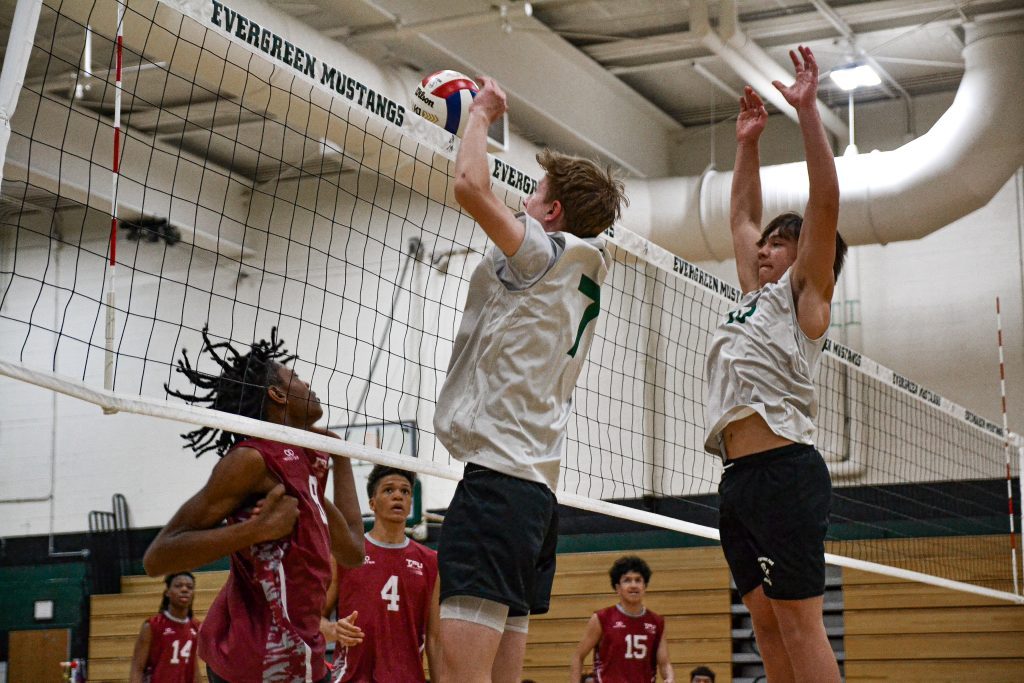
Year of growth | Evergreen Park enjoying inaugural boys volleyball season
Spread the loveBy Xavier Sanchez Correspondent After almost 70 years of existence as a high school, Evergreen Park finally has a boys volleyball team. The Mustangs are playing their inaugural season with a junior varsity squad, with some matches being played at the varsity level. Head coach Brian Zofkie is leading this group with assistant…
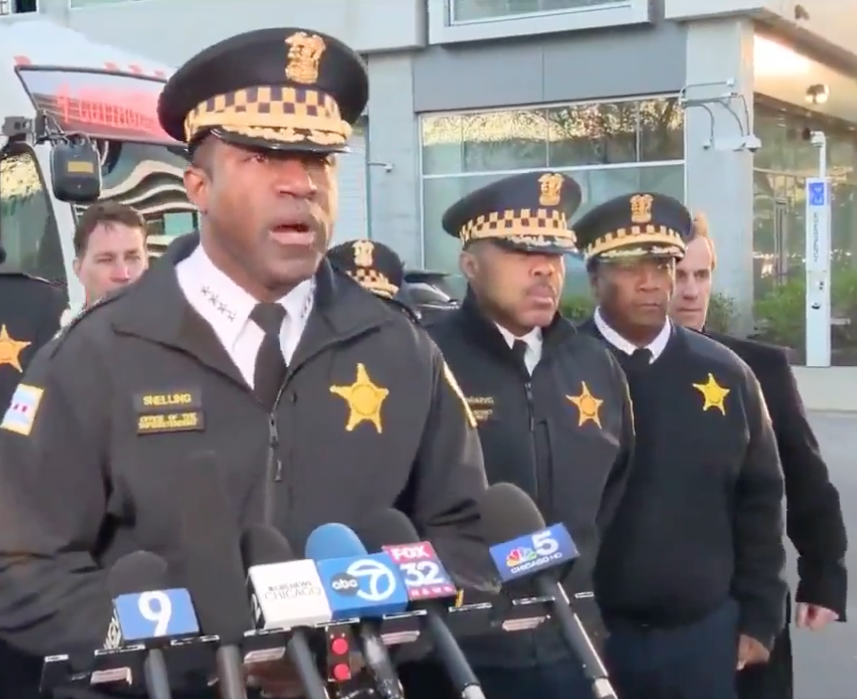
‘Brazen and cowardly’: Police, community outraged by officer’s slaying
Spread the love. By Tim Hadac Police and others across the Southwest Side reacted with outrage this week over the slaying of a Chicago Police officer in the early morning hours on Sunday. Officer Luis M. Huesca was shot to death on the street in the 3100 block of West 56th Street at 2:53 a.m.…

Swanson scores, assists in Red Stars’ win over Reign
Spread the loveThe Red Stars improved to 3-1-1 by beating the Seattle Reign, 2-1, on the road on April 21. Mallory Swanson had an assist on an Ali Schlegel goal in the fourth minute and added a goal of her own in the 31st minute. Swanson missed last season after sustaining a knee injury on…
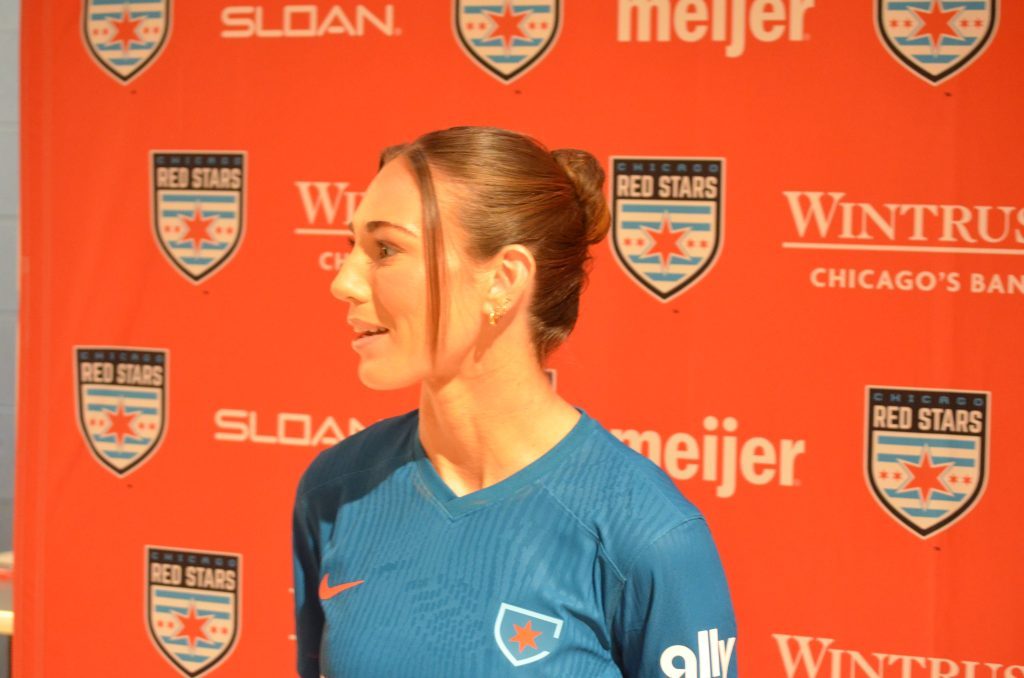
Red Stars’ Tatumn Milazzo has top Save of the Week
Spread the loveBy Jeff Vorva Correspondent Tatumn Milazzo called her achievement “funny.” The Chicago Red Stars defender and Orland Park native was awarded the NWSL’s Save of the Week after chasing down a ball in a loss to Angel City on April 13. The Save of the Week usually goes to a goalie. Milazzo laughed…

Men’s College Volleyball | Saint Xavier captures fifth straight conference tourney title
Spread the loveBy Jeff Vorva Correspondent The SXU men’s volleyball team won its fifth straight Chicagoland Christian Athletic Conference tournament championship after a 25-16, 25-17, 25-22 sweep of Calumet College of St. Joseph on April 20 at the Shannon Center. Jan Lopuch had 10 kills and nine digs for the Cougars. With the win, the…

College Baseball | Saint Xavier upsets Eastern Illinois
Spread the loveBy Jeff Vorva Correspondent The Saint Xavier baseball team picked up a win that its players are going to remember for a long time. The Cougars stunned Eastern Illinois, 4-2, on April 17 in Charleston. It was the Cougars’ first win over the Panthers, a Division I program, since 2005. Lyons grad Troy…
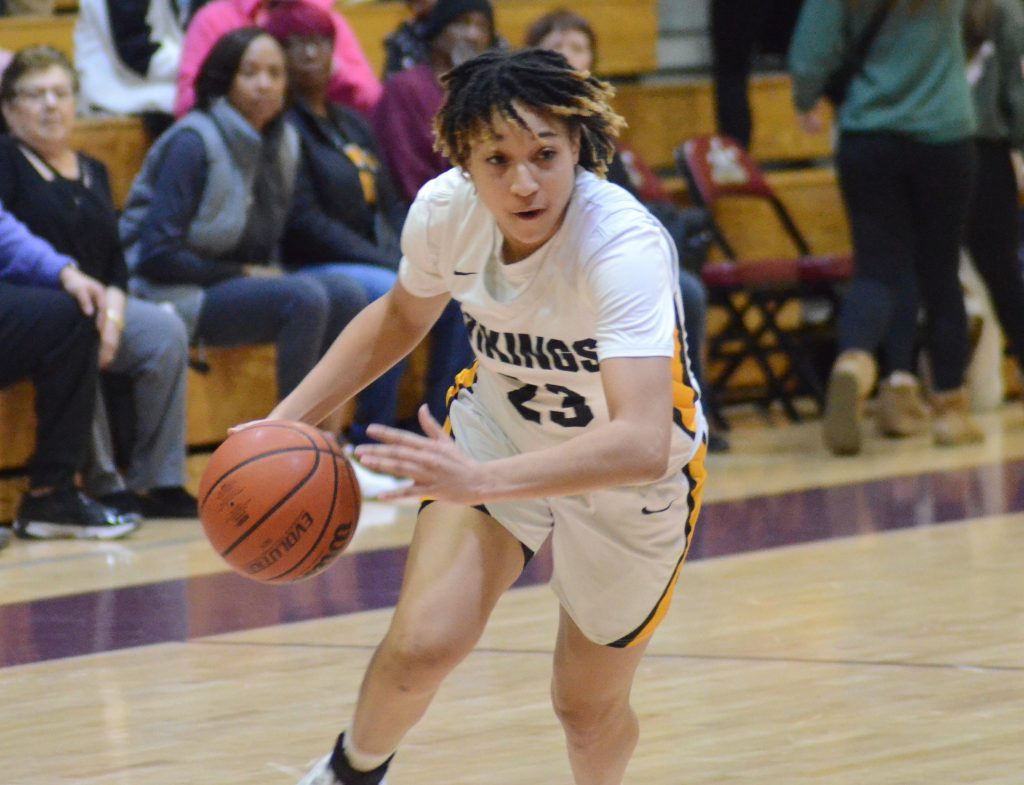
St. Laurence hoops teams top honor roll
Spread the loveBy Jeff Vorva Correspondent Area basketball teams proved to be strong on the court and in the classroom this season, and St. Laurence was the leader of the pack. The Illinois Basketball Coaches Association compiled a list of the top academic teams, and the area did well. In Division 3 girls, St. Laurence…






